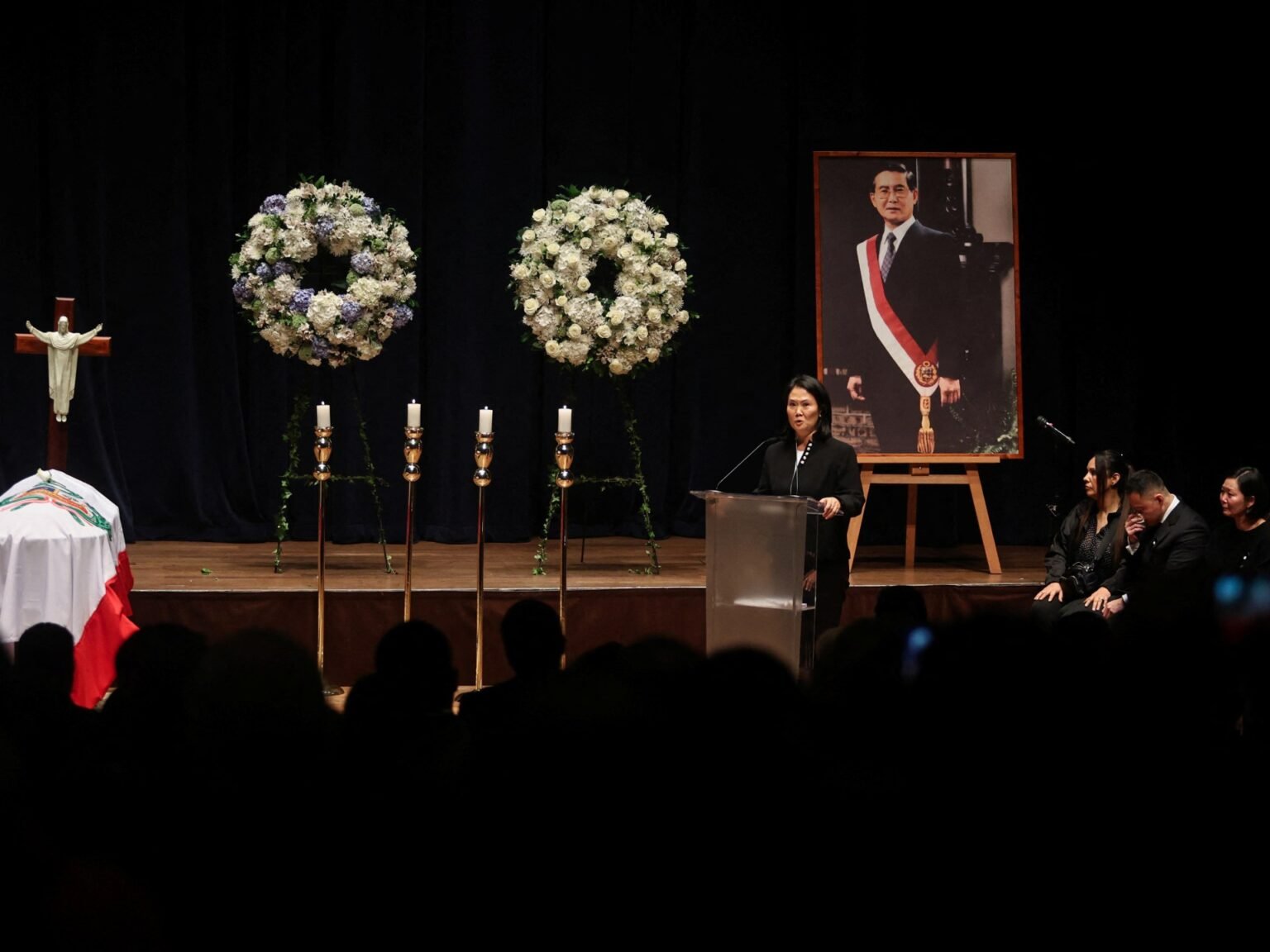The funeral of former President Alberto Fujimori in Peru has drawn both well-wishers and detractors, highlighting the ongoing debate over his controversial legacy. Fujimori, who died this week, was given a state funeral after three days of national mourning. Known by the affectionate nickname “Chino” due to his Japanese heritage, Fujimori was remembered by many for stabilizing the economy and dismantling the rebel group Shining Path during his rule in the 1990s. However, others see him as a corrupt authoritarian figure responsible for human rights abuses that scarred the country’s democracy.
Fujimori’s daughter Keiko Fujimori delivered a speech at the funeral, held at the National Theatre in Lima, where supporters chanted his nickname. Despite his popularity with some for his economic policies, Fujimori was convicted in 2009 for his role in the murder of 25 people by government death squads during his tenure. He was later released from prison due to his age, despite objections from the Inter-American Court of Human Rights. His self-coup in 1992 closed down the legislature and judiciary, and his government carried out forced sterilization campaigns targeting indigenous women, leading to further criticism of his regime.
The conflict between the government and the Shining Path rebel group claimed the lives of nearly 70,000 people, leaving lasting scars on the country. Although Fujimori’s repressive tactics were criticized, some Peruvians were willing to forgive them in exchange for the end of terrorism. Many remember him for bringing a semblance of peace and stability to the country during a turbulent time. However, the scars of his authoritarian rule and human rights abuses continue to affect the nation, with some questioning the decision to give him a state funeral given his criminal convictions.
Fujimori’s political career was marked by highs and lows, from his surprising victory in the 1990 presidential election against Mario Vargas Llosa to his dramatic fall from power. Corruption scandals and the actions of government death squads tarnished his reputation, leading to his eventual resignation and flight from Peru. The footage of his spy chief distributing cash to officials was a turning point that led to his downfall. Despite his controversial legacy, Fujimori remains a polarizing figure in Peruvian politics, with supporters and critics expressing conflicting views on his lasting impact on the country.
As Fujimori is laid to rest, the debate over his legacy continues to roil Peru, with contrasting opinions on his contributions to the nation’s history. While some credit him with bringing economic stability and ending terrorism, others condemn his human rights abuses and authoritarian rule. The state funeral served as a reminder of the complex legacy left behind by Fujimori, whose actions continue to be a subject of controversy and discussion in Peru. The memory of his presidency is likely to continue shaping the country’s political landscape for years to come.











